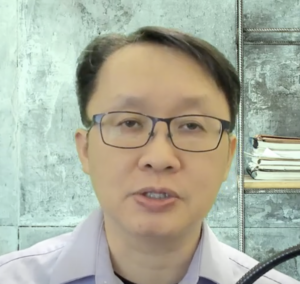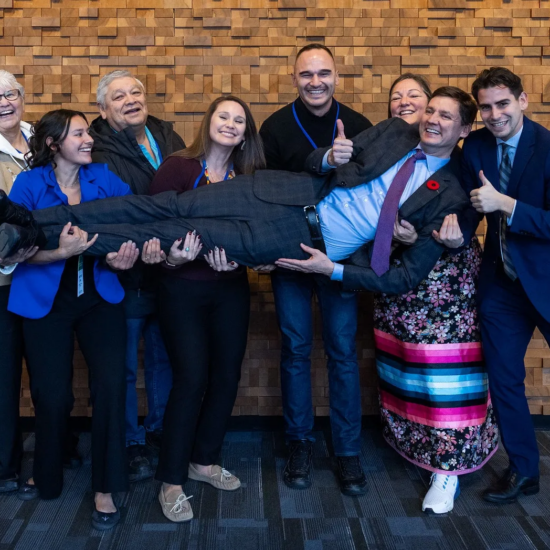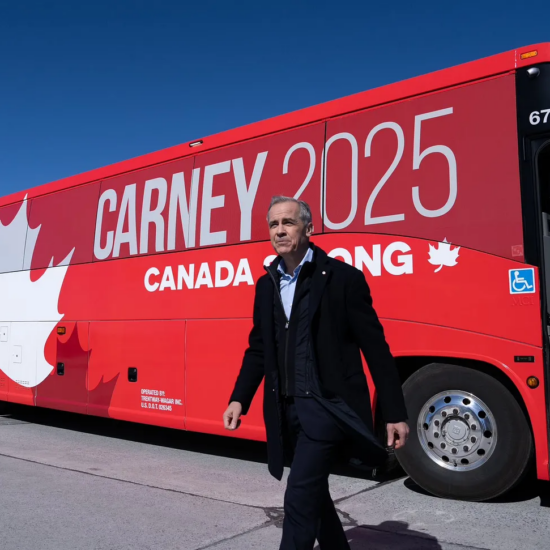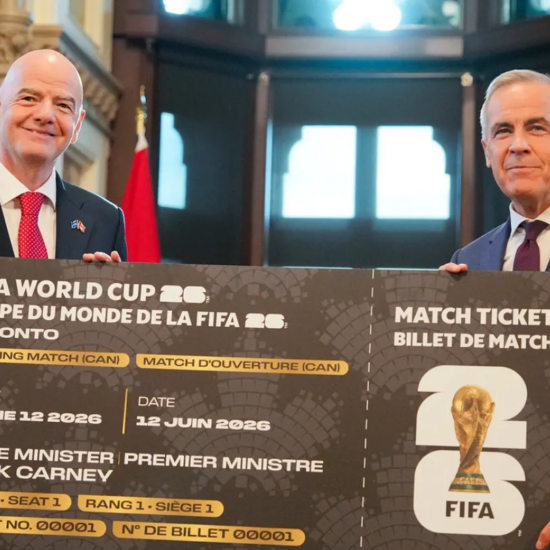Bob Mackin
An executive with Chinese-owned TikTok said he met with top Elections BC officials, in case any hostile actors use the popular short video app to sway voters in the Oct. 19 provincial election.

TikTok Canada’s Steve de Eyre (Mackin)
“That’s something we take super serious,” Steve de Eyre, the director of public policy and government affairs for TikTok Canada, said in Vancouver on July 10.
De Eyre said he met with chief electoral officer Anton Boegman and his staff “to make sure that they understand our processes, our rules, and we understand what their concerns are, and most importantly, that there’s a direct line of communication, that if there are content escalations, that they know, they have a backbone.”
De Eyre said the company’s policies do not allow false or misleading content about election processes and results or promotion of illegal activities, including intimidation of voters, election workers or observers. He said TikTok has a network of 15 global fact checkers who are informed about the main actors and potential misinformation and disinformation themes in each election.
“We defined harmful mis- and disinformation to include that that can undermine electoral processes or civic processes. So, you know, false outcomes of elections,” de Eyre said.
“It’s something we’re focused on at the provincial level, at the federal level, and again, ensuring that we’re taking it from an independent, objective standpoint.”
TikTok parent ByteDance’s operations are headquartered in Beijing, where it also runs the Douyin video app targeted at the Chinese market. TikTok CEO Shou Zi Chew appeared in Vancouver in April 2023 at the TED Conference, where he called questions about whether the Chinese government could use TikTok to interfere in a U.S. election “highly hypothetical.”
The U.S. presidential election is Nov. 5 — 17 days after B.C.’s next legislature is decided.
Chew said that, with the help of third-party monitoring, he was confident that “we can reduce this risk to as low as zero, as possible.”
Elections BC spokesperson Andrew Watson said his agency is in direct contact with several social media companies, including TikTok.
“These meetings are being held to ensure platforms are aware of the prohibitions against false statements and misrepresentation that were added to B.C.’s Election Act in 2023,” Watson said.
The Act threatens fines up to $20,000 for false statements about candidate withdrawals, elections officials, voting administration and the results, but it does not cover parody and satire.
Boegman has the power to order individuals or organizations to stop their false and misleading activities. Fines are up to $50,000 per day, for every day a violator fails to comply. The Act does not regulate political debates or all claims that might be considered disinformation by some.

(Elections BC)
“We have staff who are trained in social media monitoring to help us spot trends in the information environment, including TikTok. Our investigations team has capacity to conduct investigations related to potential contraventions of the Election Act on social media,” Watson said.
“In addition to monitoring, we rely on voters and political participants to let us know if they see something online that may constitute a contravention of the Act.”
Watson said Elections BC has networked with regulators in other provinces, as well as Australia, Sweden, Estonia, Singapore and U.S. on this topic. Officials also met with representatives of the Doublethink Lab from Taiwan during the Canadian Network on Information and Security conference held in Banff in 2024.
Academic doubtful
Benjamin Fung is a professor on data mining for cybersecurity at McGill University’s school of information studies. He is skeptical about TikTok’s co-operation with Elections BC and its approach to elections in general.
“TikTok is trying to put itself in an innocent position, claiming that the interference, if any, is coming from the users. However, the problem here is that we do not trust there is no bias on its recommender system, as illustrated in many previous political topics,” Fung said. “We are not talking about whether or not TikTok will report evidence of interference.”
The recommender system is the machine learning algorithm that helps decide what the user sees. Fung describes it as the “most-powerful and valuable component” of TikTok. It may never recommend sensitive videos, “even though they are sitting on TikTok,” he said.
The B.C. government banned its workers from using TikTok on government devices in February 2023 for privacy and security reasons.
TikTok is under even greater scrutiny in the U.S. President Joe Biden signed a law in April that required ByteDance to sell TikTok within nine months or the app be banned in the U.S. U.S. officials are concerned with the Chinese government’s strict laws that allow it to access data inside private companies in China and require those companies to each maintain a Communist Party committee.

Prof. Benjamin Fung (McGill/YouTube)
De Eyre said that TikTok user data is stored in the U.S., Singapore and Malaysia and denied it takes orders from the Chinese government.
“We’ve never removed content at the behest of the Chinese government or any one government,” he said.
The U.S. divestiture edict followed the annual threat assessment by the Office of the Director of National Intelligence, which said China is becoming more sophisticated with its foreign influence techniques, including use of generative artificial intelligence.
“TikTok accounts run by a People’s Republic of China propaganda arm reportedly targeted candidates from both political parties during the U.S. midterm election cycle in 2022,” the report said.
Research by the Brookings Institution think tank said the DPP, the party led by Taiwan’s January-elected president Lai Ching-te, struggled to communicate with the public due to the heavy use of TikTok, especially among younger voters. The report cited the Taiwan Information Environment Research Center, which said pre-election surveys in 2023 found TikTok users “tend to believe pro-China narratives that oppose pro-U.S. policies and support closer cross-strait ties.”
The Network Contagion Research Institute at Rutgers University in New Jersey analyzed hashtag data on topics sensitive to China’s government and its geopolitical objectives, such as the Ukraine-Russia War, Kashmir independence and the Israel-Hamas war.
“The conclusions of our research are clear: Whether content is promoted or muted on TikTok appears to depend on whether it is aligned or opposed to the interests of the Chinese government,” the study said.
Meanwhile, TikTok, Meta, Snap and X (formerly Twitter) are co-operating with the B.C. government on the “online safety action table” after the NDP government paused Bill 12, the Public Health Accountability and Cost Recovery law proposed during the spring session.
TikTok held a briefing session July 10 for Vancouver media about its programs and features to limit platform access for children and teenagers.
De Eyre said the companies have held one full meeting with the government and individual meetings. Another is planned for next week. There have been no “finalized solutions or plans” yet, he said.
“These are global platforms, and we’re looking at British Columbia, a subnational jurisdiction,” he said. “What is it that we can do that’s going to make a difference in British Columbia, that we, as platforms, can bring our resources towards aligning with government priorities?”
Support theBreaker.news for as low as $2 a month on Patreon. Find out how. Click here.











